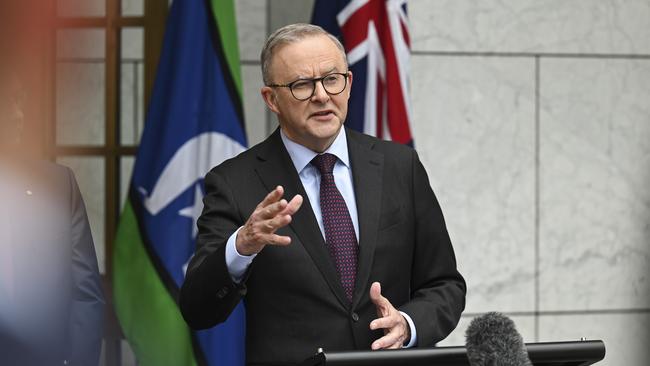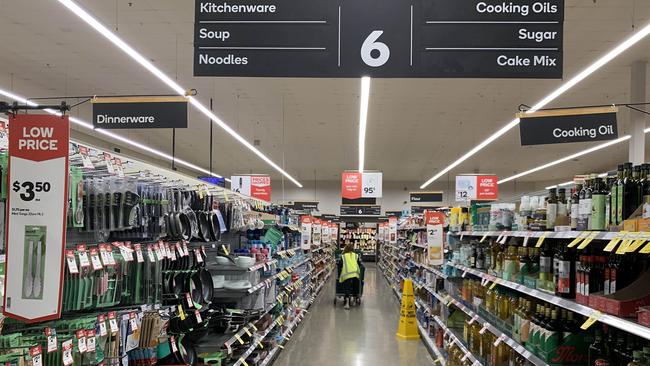Competition watchdog to probe supermarkets amid price gouging accusations
Prime Minister Anthony Albanese will direct a watchdog to scrutinise the supermarket industry over accusations it is ripping off customers.
The Albanese government will instruct the competition watchdog to scrutinise the supermarket industry amid accusations of price gouging.
The 12-month probe, which will conducted by the Australian Competition and Consumer Consumer Commission (ACCC), will examine whether supermarkets have used their market power to expand their profits, and pressure consumers, farmers and suppliers to bolster their bottom line.
Woolworths, the nation’s largest supermarket chain, together with its main competitor Coles, make up two-thirds of Australia’s food and grocery market.
Both companies have regularly defended their pricing, claiming they too are affected by cost pressures from suppliers and their workforce.

The changes were announced alongside a broader cost of living relief package, which included an overhaul of the contentious stage 3 tax cuts, by Prime Minister Anthony Albanese at an address to the National Press Club on Thursday.
“The ACCC has significant powers – and it is the best and most effective body to investigate supermarket prices,” Mr Albanese said in his first major address of 2024.
The supermarket industry will also be subject to a Greens-led parliamentary inquiry, as pressure grows on the sector which has recorded near-record profits, while consumers struggle amid the ongoing inflation crunch.
In a statement, the National Farmers Federation welcomed the competition watchdog inquiry, saying it was “good news” for those who have “long called for greater transparency from the big retailers”.
“It’s appropriate the ACCC lead this inquiry, using its powers to compel information to form a clear picture of paddock to plate pricing and whether that’s fair for both farmers and consumers,” president David Jochinke.
But he stressed the government couldn’t let the report just “collect dust” when it’s handed back next year.
“Reports and recommendations don’t make our food system fairer. We need sustained political leadership and action,” Mr Jochinke said.
Former Labor competition minister Craig Emerson is also examining the relationship between retailers and suppliers via a review of the Food and Grocery Code of Conduct.
The inquiry will investigate the industry’s current structure, competitiveness of small retailers, pricing practices and the sector’s supply chains.
Online shopping, loyalty programs and how technological change has affected competition in the industry, will also be scrutinised.

Amid accusations that lower prices paid by retailers at the farm gate aren’t flowing through to final prices, the ACCC will also be directed to scrutinise whether consumers and primary producers are receiving a fair deal.
“When farmers are selling their product for less, supermarkets should charge Australians less,” Mr Albanese.
An interim report will be released by the competition watchdog this year, with final recommendations to be released in early 2025.
Under Australian consumer law, high grocery prices are only prohibited by competition law when there is unlawful communication between the parties to co-ordinate pricing.
The government also unveiled $1.1m funding injection for consumer advocacy organisation Choice to provide clear and regular information on prices in Australian supermarket outlets, commencing in the June quarter.
“Across thousands of products it can be hard for people to find the best deal,” Mr Albanese said, adding that the funding would promote “transparency, enhance competition and drive value.”
“This will promote transparency, enhance competition and drive value.”


